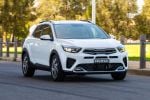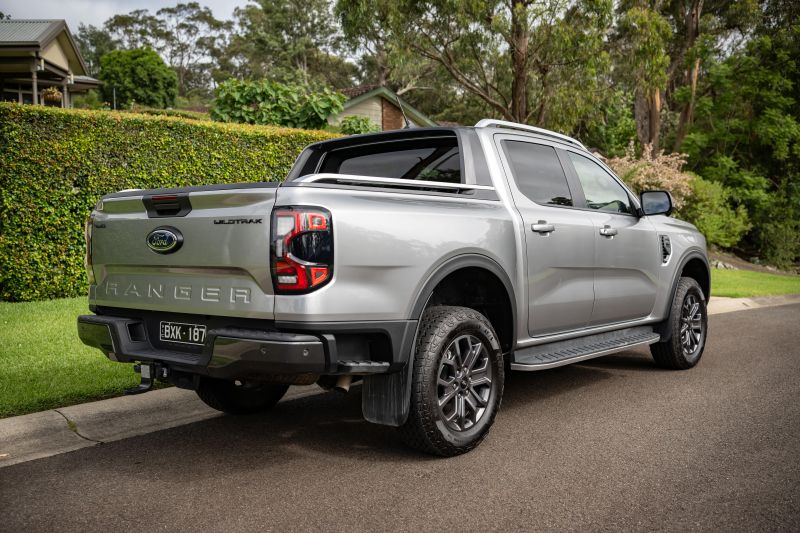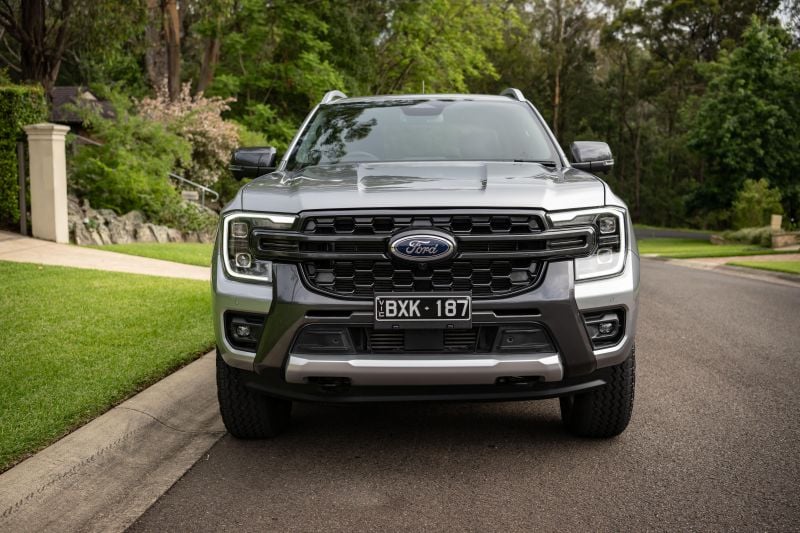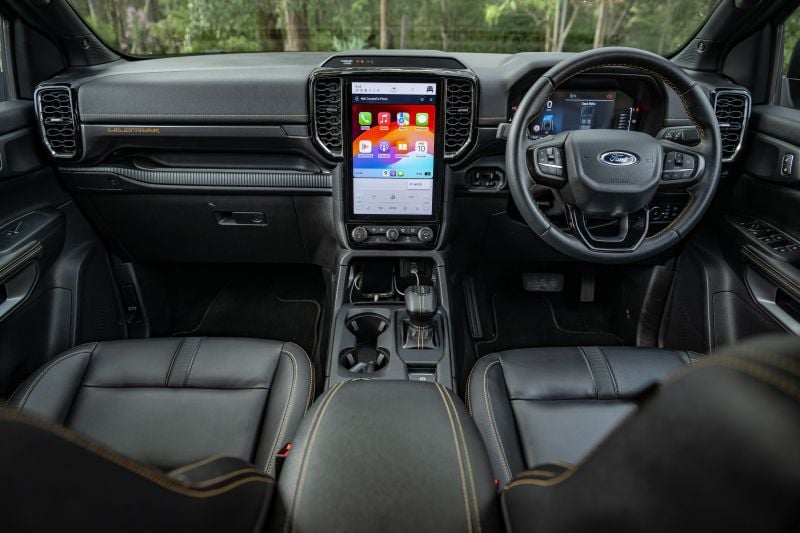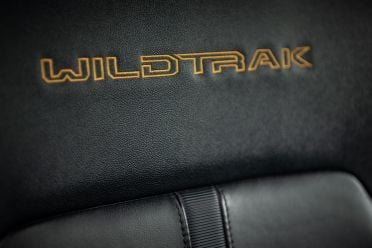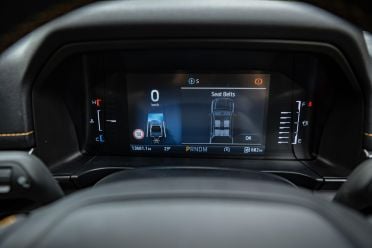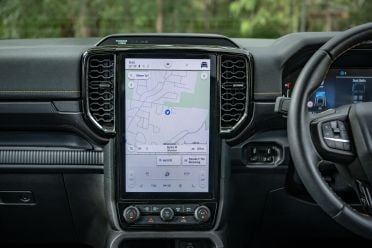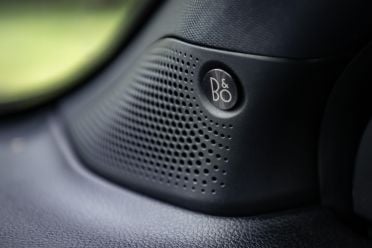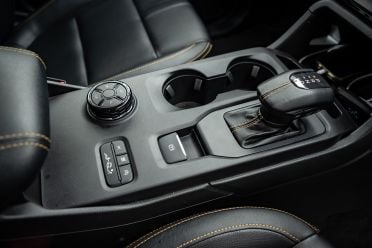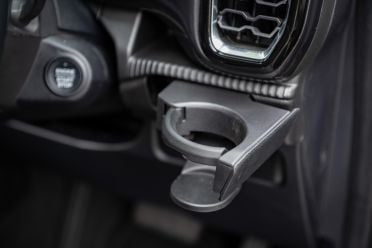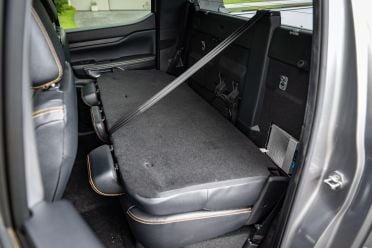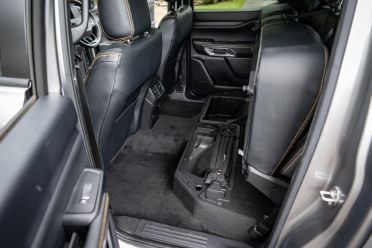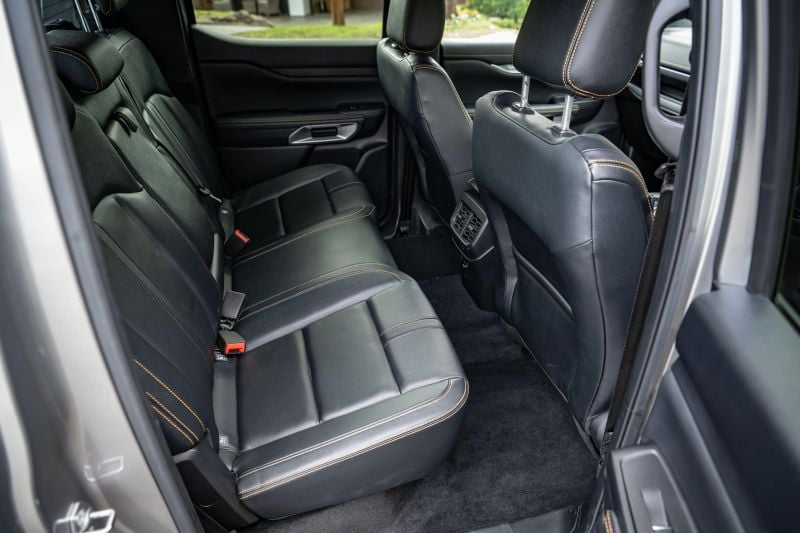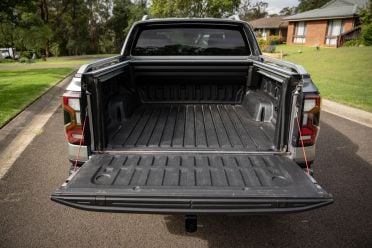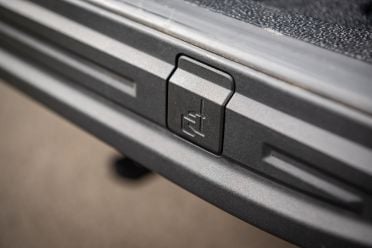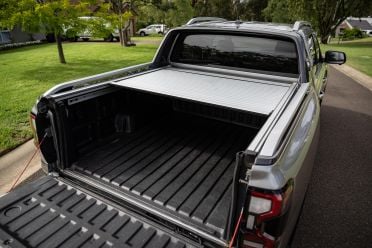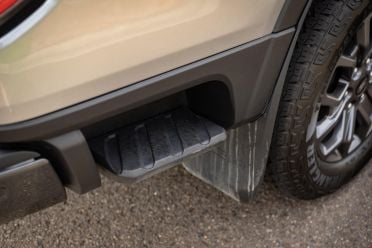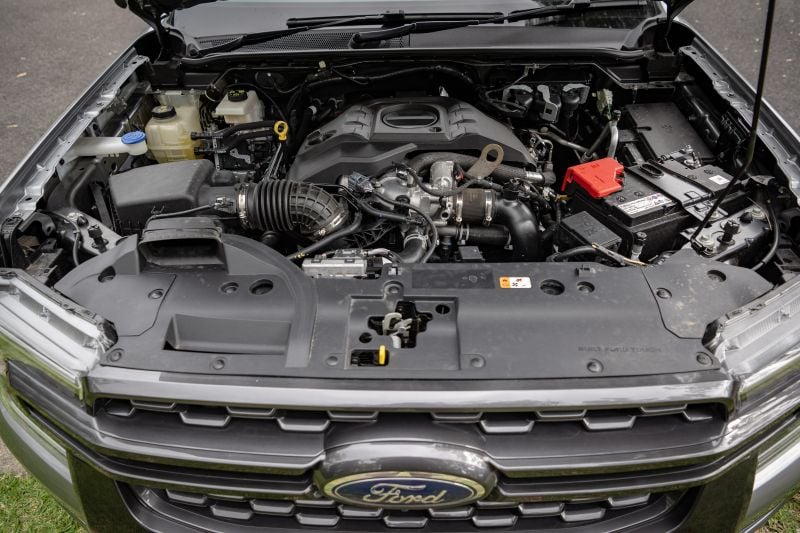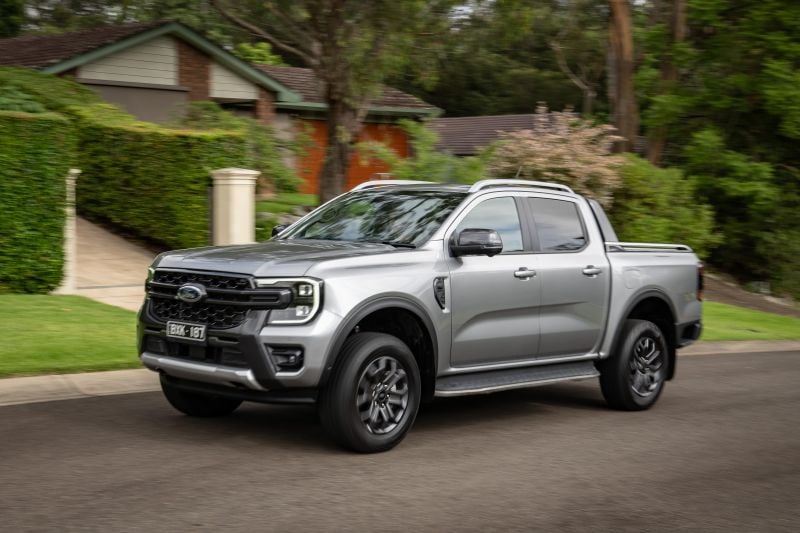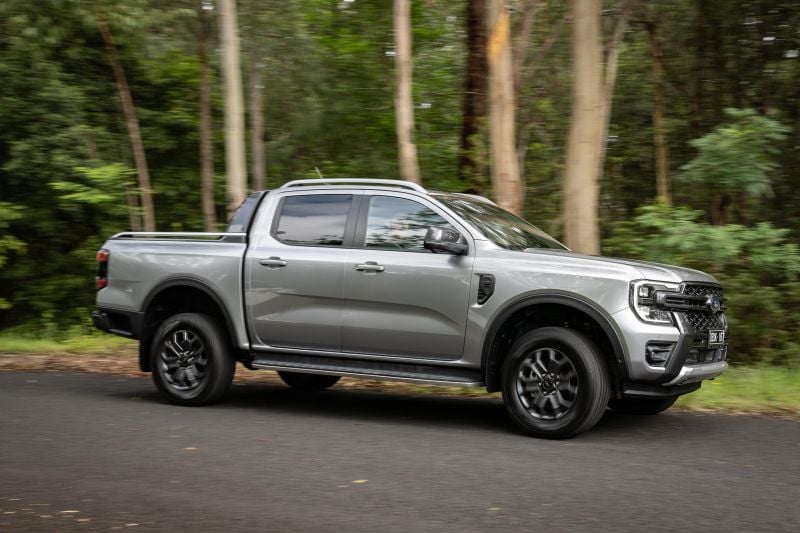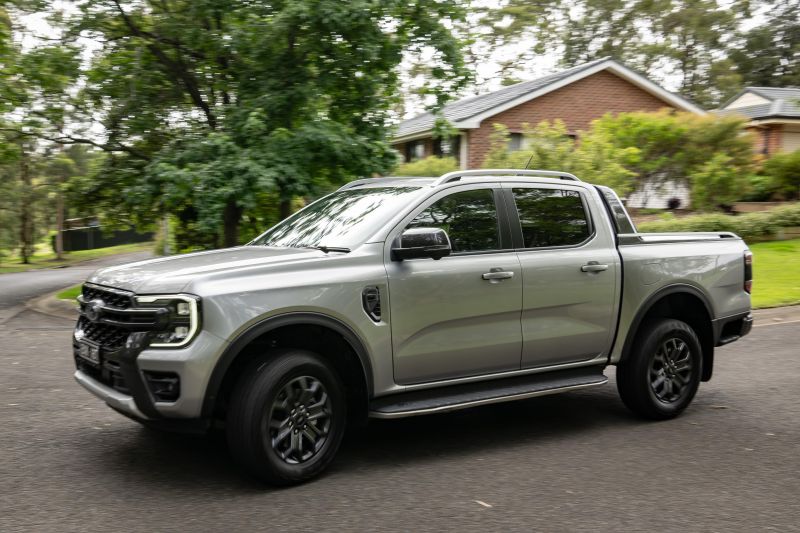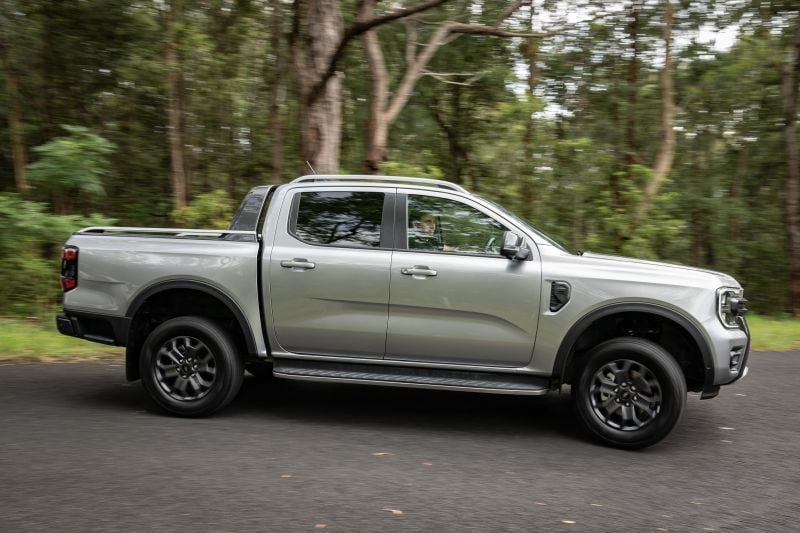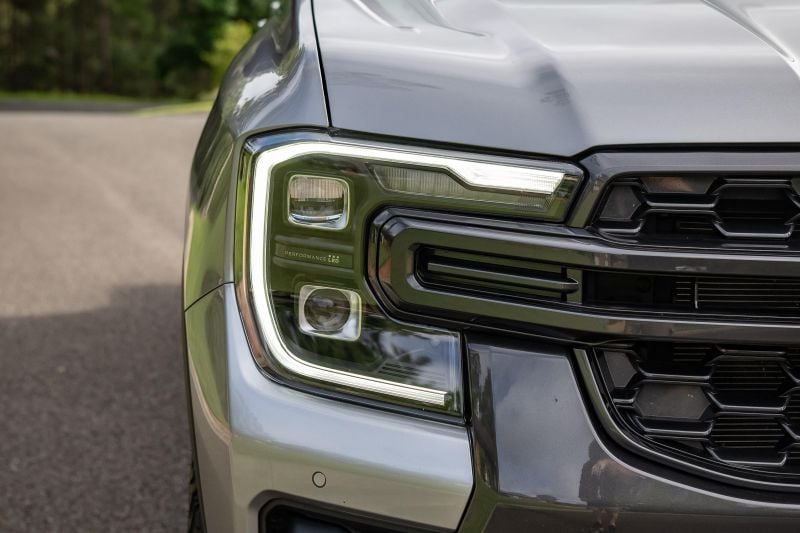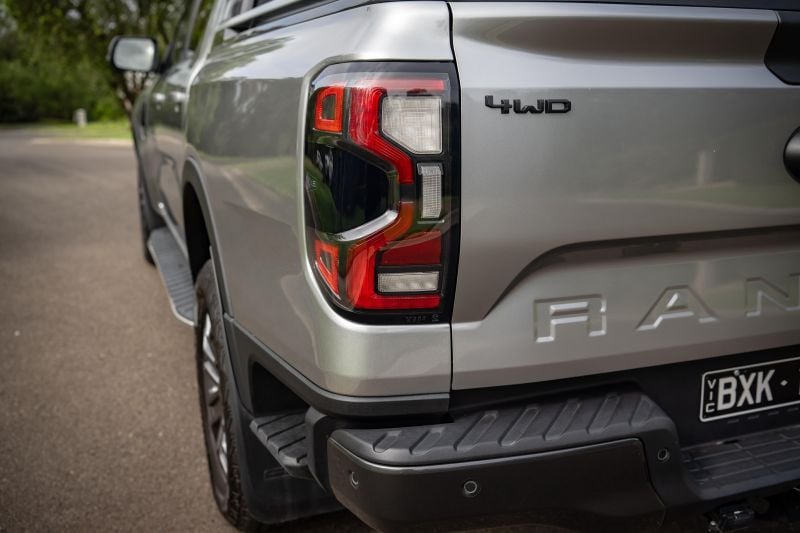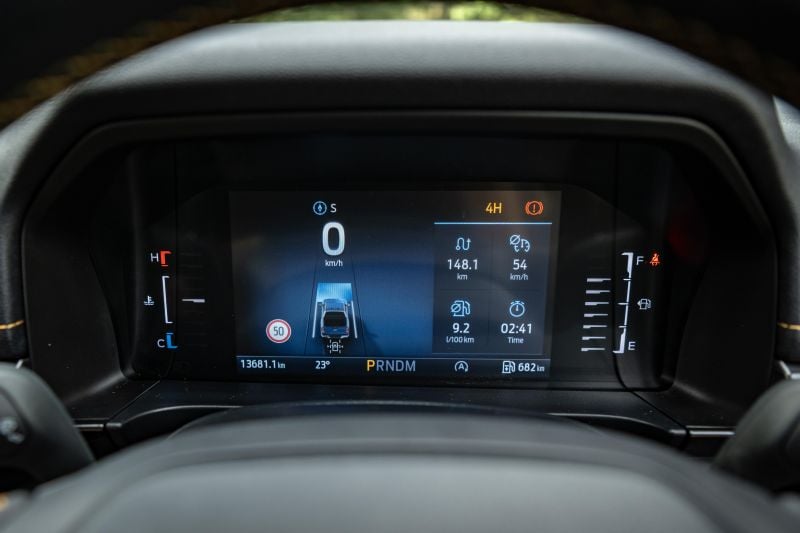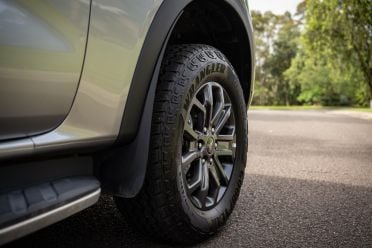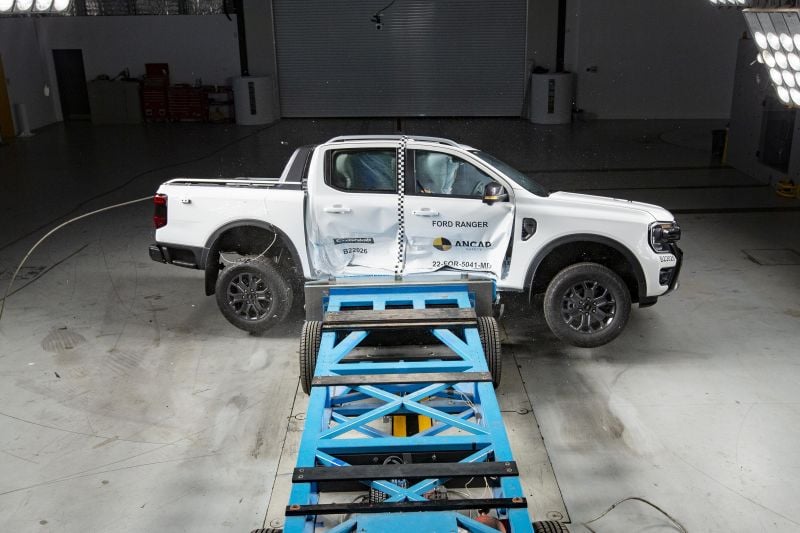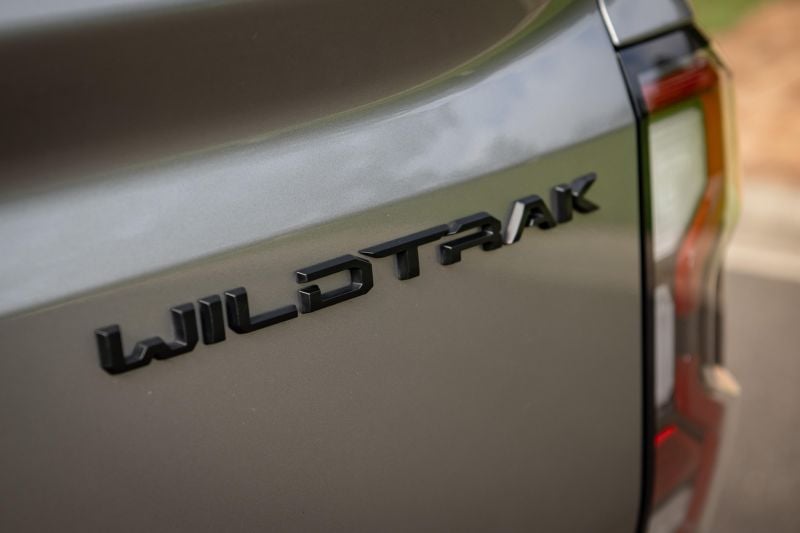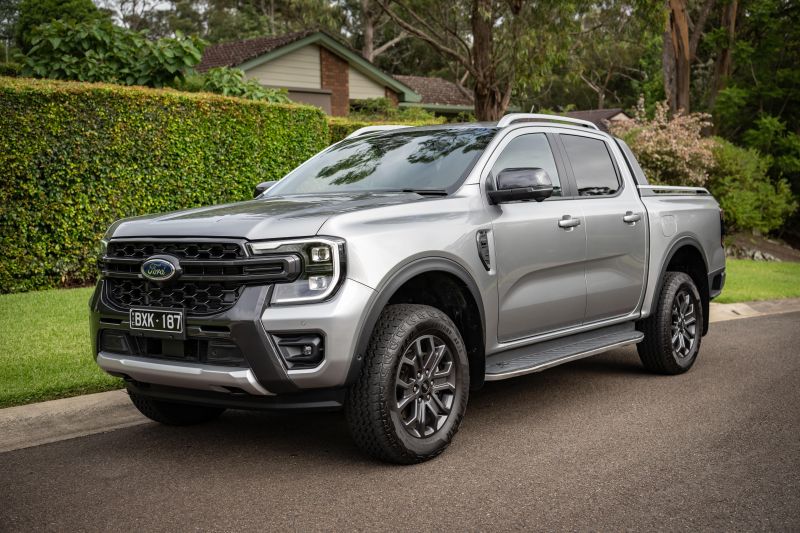Hot on the heels of Ford Australia celebrating the Ranger’s success in becoming the number-one selling vehicle in the country for 2023 – knocking off the Toyota HiLux to do so – we’ve spent a week in the Ranger Wildtrak V6.
This one has long been considered the ideal spec for buyers who will spend more time with their family in the car than sweaty workmates, and with the V6 engine it’s a hum-dinger of a thing.
But it seems to be getting more and more expensive by the second, and there are some things in the Wildtrak that might actually make you think twice about choosing a cheaper model instead.
Read on, and we’ll cover it off in this test.

How much does the Ford Ranger cost?
I had just spent a few weeks in the Ranger XLT V6 before I got into the Wildtrak V6, and I have to say you feel like you’re stepping up a few classes when you shift up to this spec.
Ford Ranger V6 pricing:
- Ranger XLT V6 cab-chassis: $65,690
- Ranger XLT V6 pick-up: $67,590
- Ranger Sport V6 pick-up: $70,090
- Ranger Wildtrak V6 pick-up: $73,590
- Ranger Platinum V6 pick-up: $79,390
It’s worth noting, too, that there are now a few different takes on the Wildtrak theme.
Ford Ranger Wildtrak pricing:
- Ranger Wildtrak Bi-Turbo pick-up: $69,390
- Ranger Wildtrak V6 pick-up: $73,590
- Ranger Wildtrak X V6: $76,890
Prices exclude on-road costs
If you want or need a V6-powered ute at this kind of money, your options are any of the Fords, or a Volkswagen Amarok V6.
The closest alternative is the 2024 Volkswagen Amarok Style TDI600, which lists at $73,740 plus on-roads, but in reality it’s the more expensive PanAmericana off-road-style model that really lines up best against the Wildtrak in terms of intent; though, the price has just been increased to $78,990.
You’ll see in the “What do you get?” section below that the Wildtrak really has a lot more glitter and guff that you might not need, so if I were you, I’d be taking a close look at the Ranger Sport V6, which stacks up pretty well on spec.
What is the Ford Ranger like on the inside?
One of the main reasons you should choose the Wildtrak over the other models in the range is that it gets a far more SUV-like, and far more special feeling, interior design.
There’s a mix of distinct materials and trim finishes in the Wildtrak that you simply don’t get in the other models in the range, and in some people’s minds the Wildtrak is actually more enticing and convincing than the more expensive Raptor’s cabin.
The changes include a dark headlining, black leather-accented seat trim with orange stitching and embroidered Wildtrak motifs. It’s as though the Wildtrak model is dressed up in its finest athleisure-wear, where the lower-spec grades feel a bit more like they’re still wearing their grungy Ruggers and hi-vis.
You get more functionality, too, with the Wildtrak also adding niceties such as pop-out cupholders at the edges of the dashboard, while there are the same good-sized cup holders between the seats, this model gets a wireless phone charger and storage section in front of the shifter, a sizable centre console bin, and big bottle holsters in the doors, too.
This spec also scores a larger, more convincing looking tablet-style media screen, a 12.0-inch portrait display which fills its bezels better than the 10.1-inch screen in the lower-spec models. But as with the smaller unit, there’s still satellite navigation included, plus wireless Apple CarPlay and Android Auto.
There are multiple on-screen menus and displays to play with, but thankfully they are relatively simple, and you get used to navigating through the display menus pretty quickly once you’ve spent some time with it.
If you plan to tow there is a series of different towing settings and controls that you can use through the screen, including setting up different trailers as favourites, and the ute can even run a blinkers and brake light check for you!
Further making it simpler than some other utes during normal operations is the additional bank of buttons for climate control and fan settings below the screen. This makes living with the Ranger far easier than some of those utes where you have to do more through the touchscreen.
Oddly though, the Wildtrak still doesn’t get the full-scale (12.3-inch) digital instrument display, instead making do with the same 8.0-inch part-digital unit as seen in the cheaper models. It is really easy to learn with simple controls for the trip computer and other display layouts.
The ambience is lifted by the inclusion of electric seat adjustment and heating for the front seats. Sadly, you need to spend up to the Platinum model to get ventilated front pews.
With the driver’s seat set for my driving position (182cm / 6’0”) I had enough room in the back to be comfortable, but my knees just brush the seat ahead. There’s good foot, head and shoulder room, but three big adults across the back will be tight.
For child-seat fitment there is a pair of top-tether points behind the back seats, which is better than some utes which have just one centrally-mounted tether loop. Just like other utes though, you never feel as though it’s as tightly restrained as you might wish it could be. Thankfully there are ISOFIX points in the window seats.
Between the back seats is an armrest with cupholders, plus the back features a pair of map pockets, decent door pockets, a pair of directional air vents, and a 12-volt plug – which you might want to fit a USB adapter into, because there are no USB ports, and there’s no 230-volt powerpoint in this spec either.
If you need it, there is extra storage capacity under the seat base, which you can fold up in a single piece.
Tub dimensions are decent for the most part, but the electric roller cover does eat into the usability of the space at the headboard, as you can’t use all of the available 1464mm of tub length (tailgate up).
However, it is a wide tub – 1520mm wide and 1224mm between the arches, meaning it’s large enough to cope with a standard Aussie pallet (1165mm) – and it’s 525mm deep. What that all equates to is ample space for camping gear or luggage for a family trip away.
The Wildtrak also comes with a fitted plastic tub liner, which isn’t as grippy as a spray-in liner. But, it does make for easy sweeping if you do a tip trip with garden waste or a nursery run for soil.
There are a few different tiedown points in the tub, a 12-volt outlet and twin LED lights on the edges.
The tailgate has assisted closing but still clangs down when you open it, as it’s not piston-assisted. Unlike on the XLT and more work-focused models, you don’t get a measuring tape, either. But you still get twin clamp points, so you could use it as a mobile workbench if you needed to.
The side-tub steps at the rear allow you to climb in a little bit more easily, and that’s especially handy if you have a trailer or caravan attached. There is also a full-size spare wheel under the tub floor.
What’s under the bonnet?
As mentioned above, you can get a four-cylinder Wildtrak or Wildtrak X, if you wish.
But this one is packing the ‘Lion’ 3.0-litre V6 turbo-diesel under its bonnet, which produces 184kW and 600Nm. It is mated to a 10-speed automatic transmission, with a full-time four-wheel drive system with a 4A mode that will apportion torque to front or rear axles (or both) as required. Or you can run it in 2H, 4H or 4L low-range.
The Wildtrak has a towbar, wiring harness and electronic brake controller fitted as standard, too, and there’s a brilliant bit of tech integrated into the media screen that allows you to save different trailers (caravan, horse float, box trailer) by inputting their dimensions and the car’s computer will adjust metrics and safety systems to suit whatever load is behind.
The Ranger ute range has a towing capacity of 750kg for an unbraked trailer, and 3500kg for a braked trailer. Speaking of loads, the payload is rated at a tax-friendly 1030kg for the Wildtrak, with a kerb weight of 2384kg, a gross vehicle mass (GVM) of 3350kg, and a gross combination mass (GCM) is 6400kg – make sure you do the maths if you actually plan to tow a 3500kg trailer behind!
The official combined cycle fuel consumption for the Ranger Wildtrak V6 is 8.4 litres per 100km. Over a week of mixed driving, I managed a return of 9.4L/100km, and I was happy with that!
How does the Ford Ranger drive?
I’m sold on the V6 in the Ford Ranger. It’s such an ideal fit for this type of ute, especially when you’re looking at the Wildtrak. Even more so if you know you’ll be towing or heading out for a big road trip with the family.
It’s a lovely engine, and offers ample pulling power from low in the rev range. If you want a ute that makes hard work feel easy, and you don’t want to spend $100,000-plus on one of the BIG trucks, then a Ranger with the V6 will hit the spot.
Helping it get things right is a 10-speed automatic transmission which offers smart shifts and allows you to make best use of the V6 engine in almost all situations.
The most annoying thing about the transmission is the silly shifter. Even after spending months in the new-gen Ranger on and off over the time since it launched – it still trips me up.
It’s an e-shifter, so you don’t push a button on the side to shift, instead you use a trigger at the top of the lever, and the buttons on the side of the selector are for the manual mode or to use Progressive Range Select, which essentially allows you to turn the 10-speed auto into a four-, five-, six-, seven-, eight- or nine-speed auto.
It means you can tailor the drive to the situation you’re in, and it’s particularly handy off-road, or when you’re towing.
I didn’t do off-roading or towing in this test, but I have in this spec of Ranger in the past, and it’s a seriously accomplished machine in those situations.
Plus the handling of the Ranger remains a highlight, even if the Wildtrak’s all-terrain tyres do have an impact on the drive experience to a small degree.
For instance, these tyres are heavier than the ones you find on say, an XLT (which I drove just before getting this Wildtrak), and the grip physics are different, too. So it’s not necessarily as sweet riding or as smooth driving in all situations as some of the versions that skip the all-terrain rubber, but it still really good to drive.
There’s a great level of control, comfort, and compliance from the suspension. Remember this is a ladder-frame, body-on-chassis, serious off-road vehicle that’s designed to tow 3.5 tonnes and cope with a tonne in the tray as well – it really is a testament to Ford’s local engineers that this thing deals so well with Aussie roads.
It has excellent steering, too, with a light action that makes for easy parking, while at higher pace it has a good level of reassurance and weightiness, too.
Refinement levels are great as well. It is far more convincing and liveable than some other diesel utes out there, especially four-cylinder jobbies. The V6 has a nice engine warble to it, without too much vibration at idle or rattle as speeds rise.
You get some wind noise from the mirrors, and the all-terrains are a little louder than the highway rubber on other grades, but it’s pretty hushed, generally.
What do you get?
Ranger Wildtrak highlights:
- 18-inch Boulder Grey alloy wheels
- 18-inch Boulder Grey alloy spare wheel
- Goodyear Wrangler all-terrain tyres
- Unique Wildtrak sports bar
- Power tub roller shutter
- Wildtrak front grille with mesh pattern
- Boulder Grey accents
- Exterior side mirrors with puddle lamps, zone lighting
- Roof rails
- Aluminium load box tie down rails
- 12.0-inch touchscreen infotainment system
- Wireless Apple CarPlay, Android Auto
- 8.0-inch digital instrument cluster
- Interior ambient lighting
- Pull-out dash-mounted cupholders
- Unique Wildtrak leather-accented upholstery
- Heated front seats
- 8-way electrically adjustable front seats
- Surround-view camera
- Automated parking assist
That’s in addition to what you get in the cheaper grades, including:
- Dual-zone climate control
- Satellite navigation
- Voice assistant
- Tow bar
- Integrated trailer brake controller
- Leather-wrapped steering wheel
- Keyless entry with push-button start
- Electrochromatic mirror
- Rain-sensing window wipers
- Adaptive cruise control with lane-centring and stop/go
- Blind-spot monitoring incl. Trailer Coverage
- Traffic sign recognition
- Tyre pressure monitoring
Is the Ford Ranger safe?
The current-generation Ford Ranger has the maximum five-star ANCAP safety rating based on 2022 testing.
Category scores included 84 per cent for adult occupant protection, 93 per cent for child occupant protection, 74 per cent for vulnerable road user protection, and 83 per cent for safety assist.
Standard safety equipment includes:
- Autonomous emergency braking (AEB)
- Car, Pedestrian, Cyclist detection
- Junction assist
- Adaptive cruise control
- Blind-spot assist
- Rear cross-traffic alert (Pick-up)
- Lane departure warning
- Lane keep assist
- Road edge detection
- Reversing camera (Pick-up)
- Rear parking sensors (Pick-up)
- Trailer Coverage (with optional Tow Pack)
The Ranger has nine airbags fitted, including dual front, front side, front centre, driver’s knee, passenger knee, and full-length curtain coverage.
I love the fact that you can easily disable the steering assistance system by double-pressing the button on the steering wheel, and if you’re watching your licence demerits, the speed-sign adaptive cruise control system could be a really great inclusion for your peace of mind.
How much does the Ford Ranger cost to run?
Buy any Ford and you get a five-year, unlimited-kilometre warranty.
Servicing for the Ranger is pegged at 12 months/15,000km, which is better than a Toyota HiLux (six months/10,000km) but not as generous as a Nissan Navara (12 months/20,000km).
Buyers have access to four years of affordable capped-price servicing, with each of the first four visits just $329. The Blue Oval brand offers up to seven years of roadside assistance if you maintain your vehicle at the company’s workshops.
CarExpert’s Take on the Ford Ranger
It’s really bloody easy to recommend the Ford Ranger Wildtrak V6 as a great choice for those who will use it for work, play, or both.
It’s the consummate lifestyle truck, with a great drive experience, strong powertrain, interesting cabin and clever inclusions. It’s damn-near perfect as a family dual-cab ute.
Click the images for the full gallery
BUY: Ford Ranger
MORE: Everything Ford Ranger
